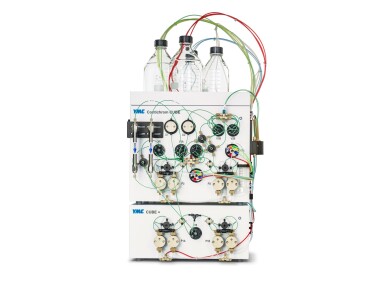Liquid Chromatography
Chromatography Digs Deeper into the 'Smell' of Parkinson's Disease
Apr 02 2021
It is thought that Parkinson’s disease is the fastest growing neurological condition in the world. In the UK, Parkinson’s UK a charity providing support to people living with Parkinson’s estimate that there are around 145,000 people living with Parkinson’s and that 1 in 37 people alive today in the UK will be diagnosed with Parkinson's in their lifetime.
Diagnosis is currently based on symptoms, medical history, and a physical examination. But there are hopes that this could change and researchers at the University of Manchester have recently published the latest instalment in a remarkable story. The paper - Metabolomics of sebum reveals lipid dysregulation in Parkinson’s disease - appears in Nature Communications and reports how scientists are using chromatography to enhance the work originally started when Joy Milne noticed her husband’s smell had changed.
You smell different dear
There are no tests that show definitively that you have Parkinson’s disease, doctors rely on your symptoms, medical history, and a physical examination. But for Joy Milne, Parkinson’s can be detected just by the sense of smell. Joy noticed a change in her husband’s odour, but for years she dismissed it. Then her husband was diagnosed with Parkinson’s, and when she attended a clinic with other people living with Parkinson’s she found something strange. They all had the same smell as her husband.
Despite researchers being initially sceptical of her ability, she eventually worked with researchers from the University of Edinburgh and University of Manchester, and they were able to confirm her ability. Since then, research teams have used chromatography and mass spectrometry to separate and identify the molecules responsible for the odour emanating from people living with Parkinson’s. To increase the speed of chromatographic analysis, take a look at the article, Fast Analysis of Biomolecules by Using Smaller and Innovative Particles.
Chromatography and a skin swab
The latest work by scientists at the University of Manchester uses a skin test for Parkinson’s. They have developed a technique that works by analysing the compounds found in sebum, an oily substance found on the surface of skin. The sebum is rich in lipid-like molecules and the team have found that people living with Parkinson’s disease may produce more sebum than usual.
The team have analysed samples from over 500 people, and they have identified over 10 chemicals in sebum which are at different concentrations than people without Parkinson’s - either raised or lowered. The team have used the findings to monitor the way sebum changes as the condition progresses. They report that the test is 85% accurate. In a press release from the University of Manchester, the team suggest: These promising results published today could lead to a definitive test to diagnose Parkinson’s accurately, speedily and cost effectively.
Digital Edition
Chromatography Today - Buyers' Guide 2022
October 2023
In This Edition Modern & Practical Applications - Accelerating ADC Development with Mass Spectrometry - Implementing High-Resolution Ion Mobility into Peptide Mapping Workflows Chromatogr...
View all digital editions
Events
Jan 20 2025 Amsterdam, Netherlands
Feb 03 2025 Dubai, UAE
Feb 05 2025 Guangzhou, China
Mar 01 2025 Boston, MA, USA
Mar 04 2025 Berlin, Germany












